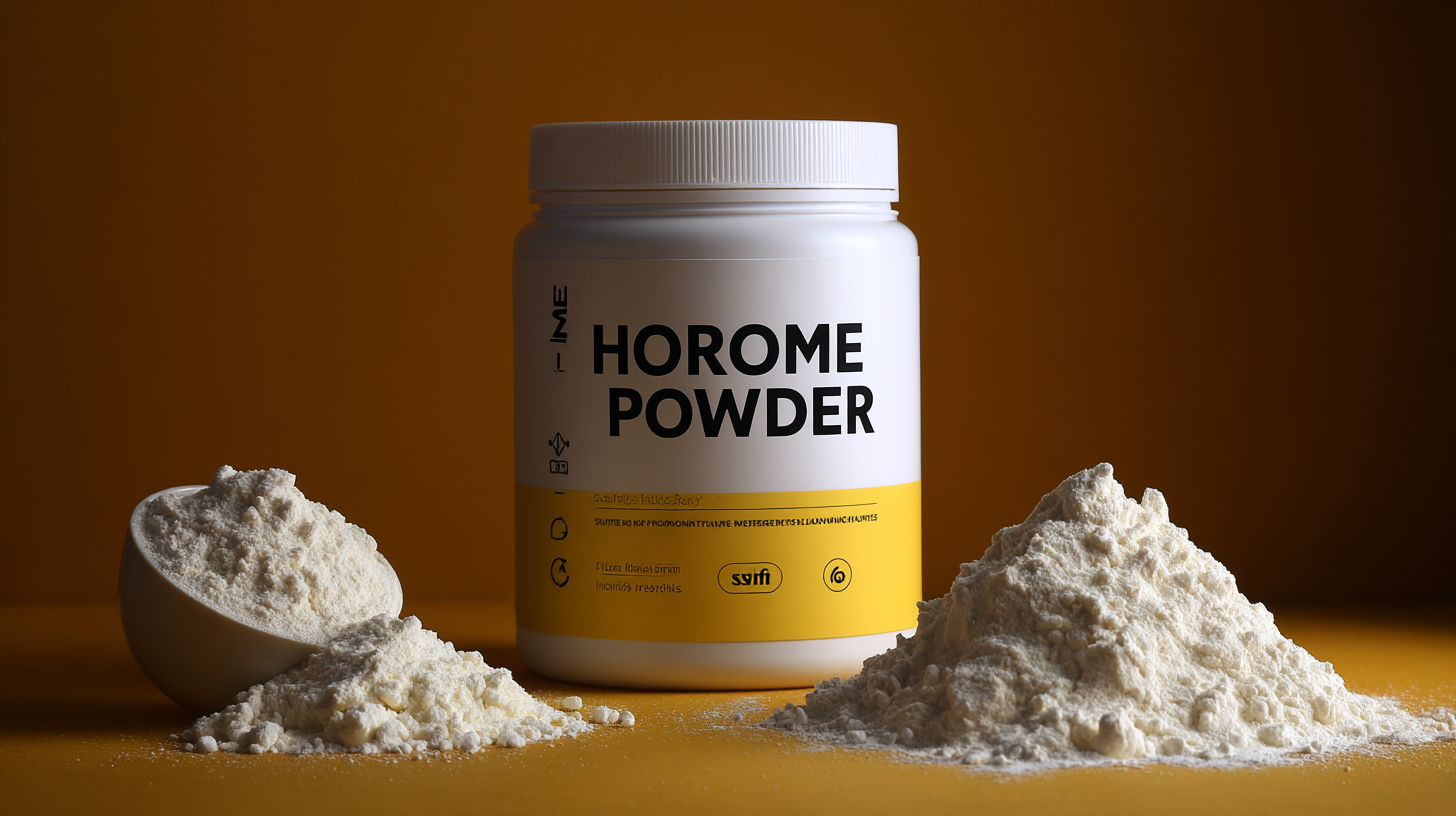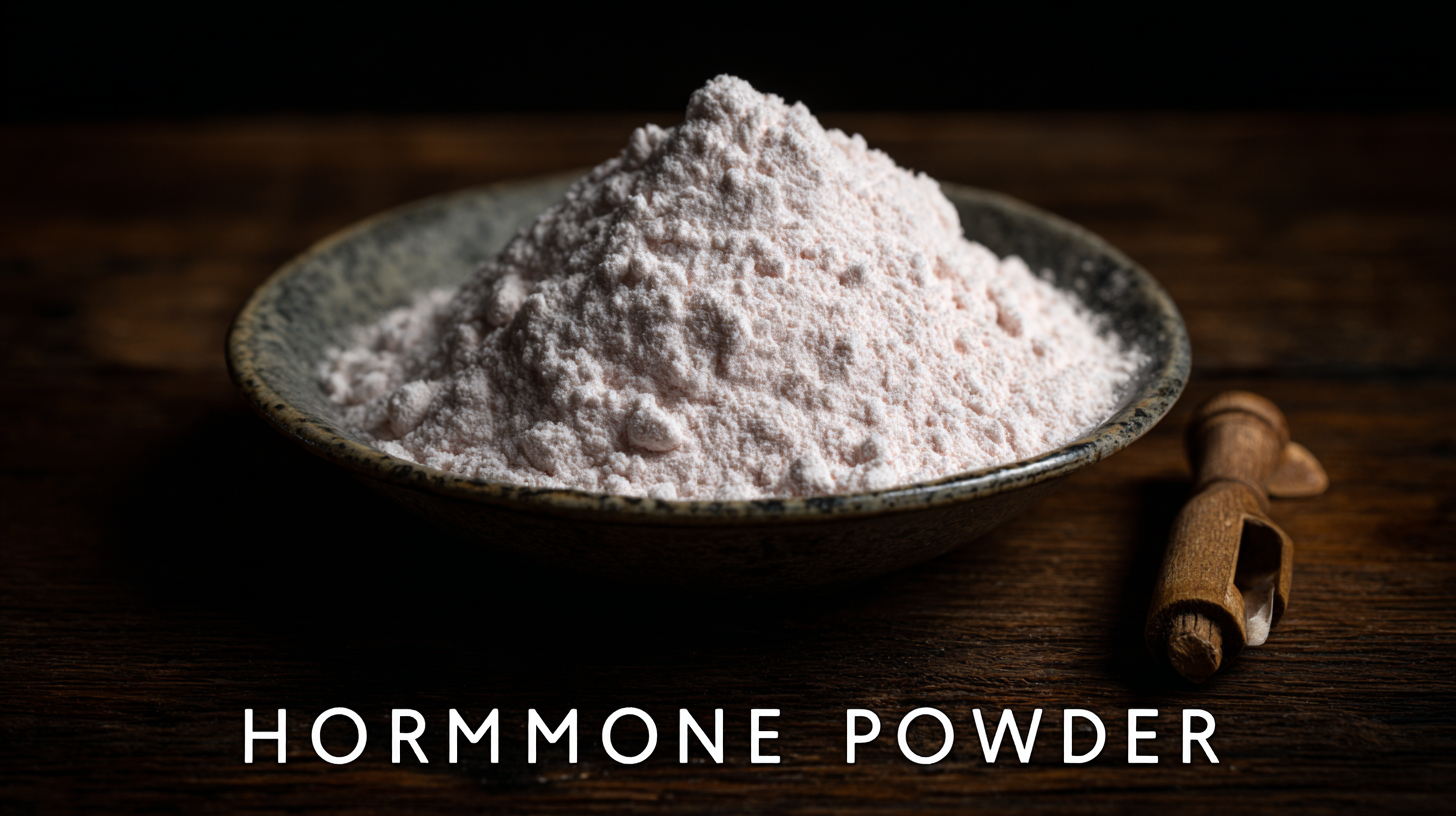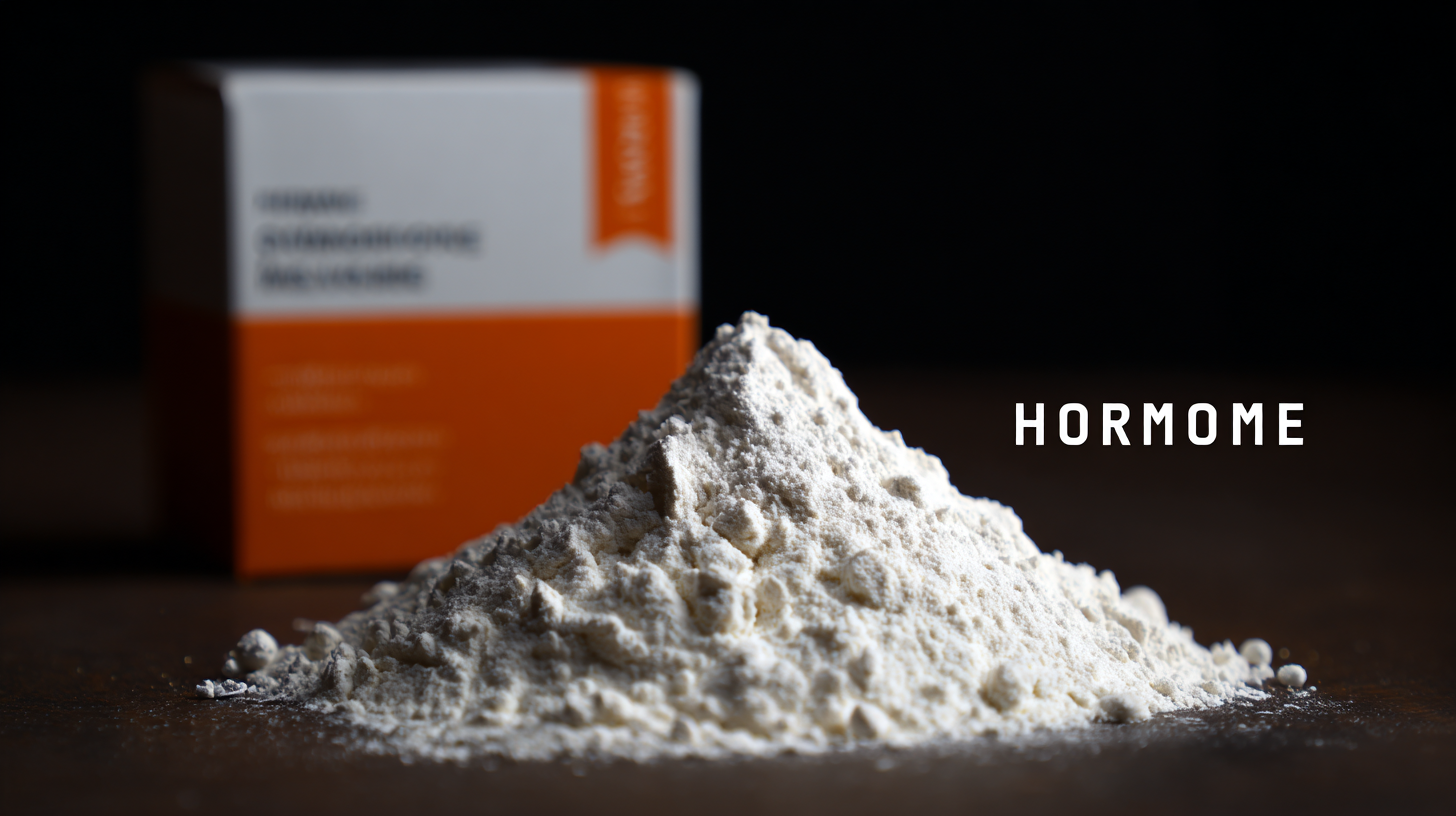 In the rapidly expanding global market for hormone-related products, finding quality suppliers of hormone powder is essential for businesses aiming to maintain high standards and meet consumer demands. As the use of hormone powder continues to rise in various sectors—including pharmaceuticals, wellness, and cosmetics—companies must navigate an intricate landscape to identify suppliers who can deliver not only quality but also reliability and compliance with industry regulations. This blog will explore effective strategies to uncover the best suppliers, emphasizing key factors such as sourcing practices, quality control measures, and supplier certification. By implementing these top strategies, businesses can ensure they partner with reputable suppliers, ultimately leading to enhanced product quality and customer satisfaction in the highly competitive hormone powder market.
In the rapidly expanding global market for hormone-related products, finding quality suppliers of hormone powder is essential for businesses aiming to maintain high standards and meet consumer demands. As the use of hormone powder continues to rise in various sectors—including pharmaceuticals, wellness, and cosmetics—companies must navigate an intricate landscape to identify suppliers who can deliver not only quality but also reliability and compliance with industry regulations. This blog will explore effective strategies to uncover the best suppliers, emphasizing key factors such as sourcing practices, quality control measures, and supplier certification. By implementing these top strategies, businesses can ensure they partner with reputable suppliers, ultimately leading to enhanced product quality and customer satisfaction in the highly competitive hormone powder market.
After-sales service plays a crucial role in the hormone powder supply chain, ensuring that both suppliers and consumers experience a seamless transaction. From product education to addressing any post-purchase concerns, effective after-sales support can significantly enhance customer satisfaction. When suppliers invest in quality after-sales service, they not only build long-term relationships with clients but also improve brand loyalty. This is especially important in global markets, where customer expectations can vary vastly.
Moreover, the intricate nature of hormone powders necessitates a robust support system to manage quality assurance and regulatory compliance. Suppliers who provide comprehensive after-sales support are better positioned to guide their clients through any challenges related to product usage, storage, and safety protocols. This proactive approach is essential in a sector where the stakes are high, as it fosters trust and reliability in the supplier-client dynamic. Properly addressed after-sales inquiries can serve as valuable feedback for suppliers, enabling them to refine their offerings and enhance overall product quality in the competitive global landscape.
When selecting suppliers for hormone powders in global markets, assessing maintenance costs becomes a crucial factor that can significantly influence overall profitability. A recent report by Research and Markets highlights that supply chain disruptions can increase procurement costs by up to 15%. Therefore, it's essential to consider the long-term operational expenses associated with potential suppliers. Factors such as logistics efficiency, storage capabilities, and the reliability of raw material sourcing should be meticulously evaluated to ensure minimal maintenance costs.

Additionally, the Global Hormone Replacement Market Report indicates that effective supplier collaborations can lead to a reduction in production downtime, further optimizing maintenance costs. For instance, companies that maintain close partnerships with dependable suppliers typically experience a 20% lower risk of operational disruptions compared to those with less stable relationships. Thus, by focusing on thorough supplier assessments and understanding the implications of maintenance costs, businesses can position themselves for success in an increasingly competitive landscape.
The global hormone powder market is intricately linked to evolving trends within the broader skincare and health industries. In 2024, the skincare market alone was valued at an impressive $115.65 billion, with projections indicating a growth trajectory that could see it reach $194.05 billion by 2028. This momentum is largely driven by increasing consumer awareness of wellness and personal care, translating to heightened demand for quality hormone-related products that cater to specific health needs.
Navigating the dynamics of supply and demand in the hormone powder sector requires a keen understanding of these macro trends. The supply chain, particularly in 2023, has faced numerous challenges ranging from sourcing quality ingredients to maintaining consistency in production. As manufacturers adapt to these complexities, the emergence of new suppliers and innovations in production processes is crucial. This shift will not only help stabilize supply chains but also ensure that consumers have access to the best quality hormone powders, reflective of market demands and the ongoing transformation in health and wellness.
When evaluating supplier performance in the quest for quality hormone powders in global markets, it's essential to focus on a well-defined set of metrics that accurately capture reliability and responsiveness. In recent studies, key metrics such as flexibility and cost have emerged as significant indicators of a supplier's ability to meet demand while maintaining rigorous quality standards. For instance, the management at Ultracomp highlights that metrics related to reliability and financial performance are pivotal in ensuring a consistent supply of high-quality materials.
Leveraging advanced technologies like deep learning and machine learning can further enhance supplier assessments by providing insights into performance trends and reliability factors. These technologies enable procurement managers to analyze vast amounts of data, identifying which suppliers meet critical lead time expectations and possess the flexibility to adapt to changing demands. As a result, firms can make informed decisions that promote better supplier relationships and ensure a reliable supply chain for hormone powders, ultimately enhancing overall market competitiveness.
Engaging and retaining quality suppliers in the global hormone powder market requires a strategic approach that balances relationship management with performance metrics. According to a report by Grand View Research, the global hormone replacement therapy market is expected to reach $54.77 billion by 2028, highlighting the increasing demand for hormone powders. To capitalize on this growth, companies must not only source high-quality suppliers but also ensure their sustained collaboration through effective communication and transparency. This can be achieved by establishing regular feedback loops and performance evaluations that allow suppliers to feel valued and encouraged to optimize their processes.

Furthermore, implementing technology-driven solutions, such as supply chain management systems, can streamline supplier engagement. A study from the International Journal of Production Economics points out that businesses leveraging technology in their supply chain networks experience a 15-20% increase in supplier performance. By embracing best practices like comprehensive training programs and joint development initiatives, organizations can build strong partnerships that enhance both supplier loyalty and product quality. These actions lead to a more resilient supply chain capable of adapting to market dynamics while ensuring the delivery of superior hormone powders.
